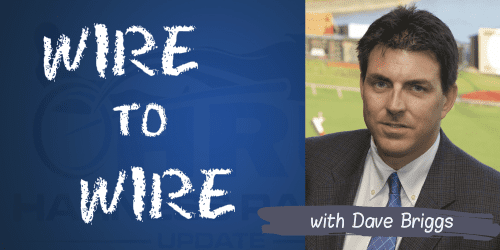Being Robbed Without Protest
Why breaking the culture of silence is essential to the survival of the sport.
by Dave Briggs
Horsepeople ask yourself this: If a fellow horseperson stole your truck while you watched, would you report it? Of course you would. Then riddle me this: Why do so few people report fellow horsepeople they have witnessed cheating?
It’s a mind-boggler to be sure. After all, it’s essentially the same thing. Those that cheat — using beards, loading horses up with performance enhancers, trying to gain an illegal edge in any way — are stealing from fellow horsepeople. To not report a person you have witnessed breaking the rules, or worse, is giving that person permission to steal from you — and everybody else — not just once, but repeatedly.
A key word in that last sentence is “witnessed”. I’ve seen the phrase “EVERYBODY knows…” so and so is a beard / cheater / bad person this week more times than I have in a year. The word “everybody” is invariably capitalized for emphasis to suggest this is a universal truth. It is not.
Suspicious results are obvious — off-the-charts winning percentage from a virtually unknown trainer; horses producing incredible drops in time or sudden, sustained, winning streaks from one barn to the next, etc. — but that does not constitute proof. Though, it’s certainly a good place for professional investigators to start if knowledgeable insiders point them in the right direction and keep up the pressure to investigate.
The same goes for witnessing a trainer with a suspended license training his or her “former” horses that are listed under a beard’s name — or any number of other obvious infractions. Make the call. You can do it anonymously to the USTA (877-800-USTA (8782)) by contacting either T.C. Lane (ext. 3203) or Chip Hastings (ext. 3250).
It’s trite to borrow Homeland Security’s slogan, “If you see something, say something,” but the general sentiment is not a bad place to start.
I understand people worry about retribution and few people relish being a snitch. But too often, instead of doing what’s right, we err on the side of the least hassle while leaning on some old mind-your-own-business, brotherhood code of silence that, in the case of staying mum about the cheaters, is a detriment to us all.
Letting cheaters cheat not only undermines the integrity of a sport that relies on precious few gambling dollars, it perpetuates the problem. It is a particularly vicious cycle and why integrity is one of horse racing’s most pressing issues.
Honest horsepeople that feel the competition is rooked against them are subsequently tempted to cheat just to stay in the game. Bettors that feel the competition is rooked against them take their gambling money elsewhere. Owners that pour money into horses trained by honest trainers get frustrated that they can’t beat the cheaters and pull their money out (or, worse, start supporting the cheaters). Fewer owners means fewer horses being produced in the first place, which not only has a negative impact on the bottom line of breeders, but also leads to smaller fields which is a deterrent to betting. Lower handle for those jurisdictions without gaming revenue leads to lower purses. Even in jurisdictions where gaming does contribute to purses, low handle as a result of small fields and the loss of bettors is a problem because it’s a signal to the political masters that authorized the slots that horse racing is a dying game unable to stand on its own two feet and undeserving of continued support.
Thus, the downward spiral becomes a whirlpool that sucks us all under.
I appreciate the frustration of those that want to report wrongdoing, but decide against it because they don’t expect the racing commission or track in their jurisdiction to act. Clearly, most commissions could do a lot more to uphold the basic tenant of their existence — to defend the law and protect both the public and the horses from unscrupulous operators. Clearly, more tracks could devote more resources to investigations.
Yes, the more the industry relies on gaming dollars rather than the proceeds of pari-mutuel wagering decreases the incentive for both commissions and tracks to want to crack down on the rule-breakers. Be persistent and realistic. Just don’t stop trying.
As for the trade press, please stop expecting it to say what you’re afraid to say — particularly without facts. Please understand most racing writers do not have the time, resources and investigative powers to prove what is often difficult to prove, especially not being on the ground at farms and training centers with enough frequency. “EVERYBODY knows” is not proof. It is rumor. The press has a legal responsibility to print what it can prove. That does not absolve racing reporters from a critical role in the process, but the burden of proof should not rest with it alone.
If the industry is going to survive, horsepeople are going to need to speak up when they see something wrong. For a brief moment last Sunday, that’s exactly what one horseperson did in a pointed letter to HRU accusing a fellow horseperson of being a beard. The letter writer subsequently requested the letter be removed fearing reprisals.
The letter may be gone, but that one act of speaking up, even for a brief moment, has kept the light on the alleged beard in question. It’s a start, but more needs to be done; more people need to make the call to the proper authorities; more horsepeople need to insist on integrity from their colleagues.
Otherwise, horsepeople better get used to surrendering their wallets to the cheaters without protest — over and over again.

















